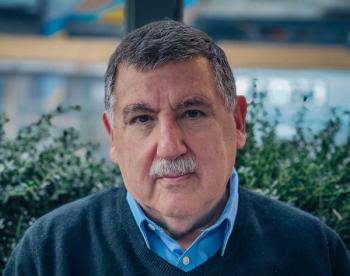
Sex and Psychiatry: The Sizzling, Steamy, Neglected Topic
The intersection of sex and psychiatry: an important topic for patient well-being that is often avoided due to stigma.
PSYCHED PERSPECTIVES
Frank A. Clark, MD, in this installment of "Psyched Perspectives," a series in which he converses with his colleagues about the practice of psychiatry, sits down with Brittany Albright, MD, MPH, to talk about the often neglected topic of the intersection of sex and psychiatry, emphasizing the importance of addressing sexual health in psychiatric care.
Albright, a Harvard-trained psychiatrist and founder of Sweetgrass Psychiatry, highlighted the neglected nature of sexual health in psychiatry and the need for better education and open conversations. Albright shared her personal experiences growing up in the 80s and 90s, where sex was stigmatized and the HIV epidemic was prevalent.
She wants to advocate for creating safe spaces for patients to discuss sexual adverse effects of medications. Psychiatric medications, including antidepressants and antipsychotics, can cause a range of sexual adverse effects, such as decreased libido, erectile dysfunction, and problems with orgasm.1
"It is our ethical obligation to have these conversations with our patients, because the worst thing we can do is steal their humanity or make their depression worse by inflicting them with sexual dysfunction," said Albright. "It is our job to set up our patients for success and to provide them with a safe space to have these very challenging, taboo conversations."
When it comes to talking about sex with patients, Albright recommends trying to be as nonjudgmental and open as possible, and using nonstigmatizing language. Additionally, she always warns patients that certain medications could potentially cause sexual health adverse effects. While the risk is low, she still wants them to be aware that they could impact all areas of the sexual health cycle. If that does happen, she tells them to message her over the patient portal, as most patients feel less fear or anxiety in messaging about sexual health in that way.
She also wished to stress the importance of a holistic approach that includes exercise, sleep, nutrition, and connectedness. Albright recommends patients utilize the
Both Clark and Albright stress the need for advocacy at all levels to improve sexual health education and reduce the stigma around discussing sexual health.
"There is no normal, even when it comes to different genders," shared Albright. "It is important that we can provide sexual education to our patients, that what they are feeling is normal. It is important that we educate each other and communicate on these issues, and that we reassure our patients that they are normal and that they are enough."
Dr Clark is an outpatient psychiatrist at Prisma Health-Upstate and clinical associate professor at the University of South Carolina School of Medicine, Greenville. He served on the American Psychiatric Association’s Task Force to Address Structural Racism Throughout Psychiatry, and he currently serves as the Diversity and Inclusion section editor and advisory board member for Psychiatric Times.
Dr Albright is an adult, adolescent, and addiction psychiatrist and owner of Sweetgrass Psychiatry in Mount Pleasant, South Carolina, as well as an emergency medicine psychiatrist with the South Carolina Department of Mental Health.
References
1. Medication-induced sexual dysfunction. National Alliance on Mental Illness. Updated January 2016. Accessed June 19, 2025.
2. Jain S, Jain R. Application of Wild 5, a Wellness Intervention in Individuals Taking Psychotropic Medications Yet Have a Moderate or Higher Severity of Depression (PHQ-9 Score of 10 or Higher). Poster session presented at US Psych Congress Annual Meeting, New Orleans, LA. September 2017.
3. Rollin D, Blakely L, Tran C, et al. Wellness Interventions for Life’s Demands (WILD-5 Wellness): Exercise, Mindfulness, Sleep, Social Connectedness, and Nutrition – Improving Mental and Physical Health Through Holistic Daily Behavior Change. Poster session presented at US Psych Congress Annual Meeting, Orlando, FL. October 2018.
Newsletter
Receive trusted psychiatric news, expert analysis, and clinical insights — subscribe today to support your practice and your patients.







